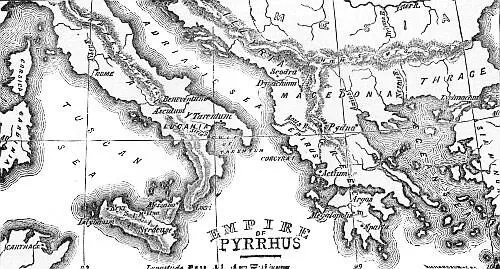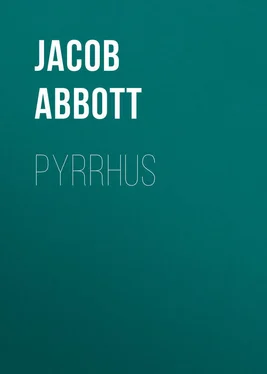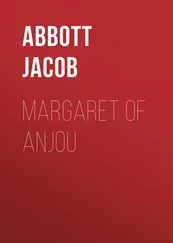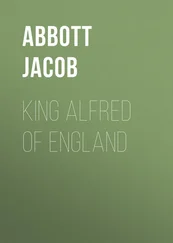Jacob Abbott - Pyrrhus
Здесь есть возможность читать онлайн «Jacob Abbott - Pyrrhus» — ознакомительный отрывок электронной книги совершенно бесплатно, а после прочтения отрывка купить полную версию. В некоторых случаях можно слушать аудио, скачать через торрент в формате fb2 и присутствует краткое содержание. Жанр: foreign_antique, foreign_prose, Историческая проза, на английском языке. Описание произведения, (предисловие) а так же отзывы посетителей доступны на портале библиотеки ЛибКат.
- Название:Pyrrhus
- Автор:
- Жанр:
- Год:неизвестен
- ISBN:нет данных
- Рейтинг книги:5 / 5. Голосов: 1
-
Избранное:Добавить в избранное
- Отзывы:
-
Ваша оценка:
- 100
- 1
- 2
- 3
- 4
- 5
Pyrrhus: краткое содержание, описание и аннотация
Предлагаем к чтению аннотацию, описание, краткое содержание или предисловие (зависит от того, что написал сам автор книги «Pyrrhus»). Если вы не нашли необходимую информацию о книге — напишите в комментариях, мы постараемся отыскать её.
Pyrrhus — читать онлайн ознакомительный отрывок
Ниже представлен текст книги, разбитый по страницам. Система сохранения места последней прочитанной страницы, позволяет с удобством читать онлайн бесплатно книгу «Pyrrhus», без необходимости каждый раз заново искать на чём Вы остановились. Поставьте закладку, и сможете в любой момент перейти на страницу, на которой закончили чтение.
Интервал:
Закладка:
Jacob Abbott
Pyrrhus Makers of History
PREFACE
In respect to the heroes of ancient history, who lived in times antecedent to the period when the regular records of authentic history commence, no reliance can be placed upon the actual verity of the accounts which have come down to us of their lives and actions. In those ancient days there was, in fact, no line of demarkation between romance and history, and the stories which were told of Cyrus, Darius, Xerxes, Romulus, Pyrrhus, and other personages as ancient as they, are all more or less fabulous and mythical. We learn this as well from the internal evidence furnished by the narratives themselves as from the researches of modern scholars, who have succeeded, in many cases, in disentangling the web, and separating the false from the true. It is none the less important, however, on this account, that these ancient tales, as they were originally told, and as they have come down to us through so many centuries, should be made known to readers of the present age. They have been circulated among mankind in their original form for twenty or thirty centuries, and they have mingled themselves inextricably with the literature, the eloquence, and the poetry of every civilized nation on the globe. Of course, to know what the story is, whether true or false, which the ancient narrators recorded, and which has been read and commented on by every succeeding generation to the present day, is an essential attainment for every well-informed man; a far more essential attainment, in fact, for the general reader, than to discover now, at this late period, what the actual facts were which gave origin to the fable.
In writing this series of histories, therefore, it has been the aim of the author not to correct the ancient story, but to repeat it as it stands, cautioning the reader, however, whenever occasion requires, not to suppose that the marvelous narratives are historically true.

Chapter I.
Olympias and Antipater
Pyrrhus, King of Epirus, entered at the very beginning of his life upon the extraordinary series of romantic adventures which so strikingly marked his career. He became an exile and a fugitive from his father's house when he was only two years old, having been suddenly borne away at that period by the attendants of the household, to avoid a most imminent personal danger that threatened him. The circumstances which gave occasion for this extraordinary ereption were as follows:
The country of Epirus, as will be seen by the accompanying map, was situated on the eastern shore of the Adriatic Sea, 1 1 See the opposite map.
and on the southwestern confines of Macedonia. The kingdom of Epirus was thus very near to, and in some respects dependent upon, the kingdom of Macedon. In fact, the public affairs of the two countries, through the personal relations and connections which subsisted from time to time between the royal families that reigned over them respectively, were often intimately intermingled, so that there could scarcely be any important war, or even any great civil dissension in Macedon, which did not sooner or later draw the king or the people of Epirus to take part in the dispute, either on one side or on the other. And as it sometimes happened that in these questions of Macedonian politics the king and the people of Epirus took opposite sides, the affairs of the great kingdom were often the means of bringing into the smaller one an infinite degree of trouble and confusion.
The period of Pyrrhus's career was immediately subsequent to that of Alexander the Great, the birth of Pyrrhus having taken place about four years after the death of Alexander. At this time it happened that the relations which subsisted between the royal families of the two kingdoms were very intimate. This intimacy arose from an extremely important intermarriage which had taken place between the two families in the preceding generation – namely, the marriage of Philip of Macedon with Olympias, the daughter of a king of Epirus. Philip and Olympias were the father and mother of Alexander the Great. Of course, during the whole period of the great conqueror's history, the people of Epirus, as well as those of Macedon, felt a special interest in his career. They considered him as a descendant of their own royal line, as well as of that of Macedon, and so, very naturally, appropriated to themselves some portion of the glory which he acquired. Olympias, too, who sometimes, after her marriage with Philip, resided at Epirus, and sometimes at Macedon, maintained an intimate and close connection, both with her own and with Philip's family; and thus, through various results of her agency, as well as through the fame of Alexander's exploits, the governments of the two countries were continually commingled.
It must not, however, by any means be supposed that the relations which were established through the influence of Olympias, between the courts of Epirus and of Macedon, were always of a friendly character. They were, in fact, often the very reverse. Olympias was a woman of a very passionate and ungovernable temper, and of a very determined will; and as Philip was himself as impetuous and as resolute as she, the domestic life of this distinguished pair was a constant succession of storms. At the commencement of her married life, Olympias was, of course, generally successful in accomplishing her purposes. Among other measures, she induced Philip to establish her brother upon the throne of Epirus, in the place of another prince who was more directly in the line of succession. As, however, the true heir did not, on this account, relinquish his claims, two parties were formed in the country, adhering respectively to the two branches of the family that claimed the throne, and a division ensued, which, in the end, involved the kingdom of Epirus in protracted civil wars. While, therefore, Olympias continued to hold an influence over her husband's mind, she exercised it in such a way as to open sources of serious calamity and trouble for her own native land.
After a time, however, she lost this influence entirely. Her disputes with Philip ended at length in a bitter and implacable quarrel. Philip married another woman, named Cleopatra, partly, indeed, as a measure of political alliance, and partly as an act of hostility and hatred against Olympias, whom he accused of the most disgraceful crimes. Olympias went home to Epirus in a rage, and sought refuge in the court of her brother.
Alexander, her son, was left behind at Macedon at this separation between his father and mother. He was then about nineteen years of age. He took part with his mother in the contest. It is true, he remained for a time at the court of Philip after his mother's departure, but his mind was in a very irritable and sullen mood; and at length, on the occasion of a great public festival, an angry conversation between Alexander and Philip occurred, growing out of some allusions which were made to Olympias by some of the guests, in the course of which Alexander openly denounced and defied the king, and then abruptly left the court, and went off to Epirus to join his mother. Of course the attention of the people of Epirus was strongly attracted to this quarrel, and they took sides, some with Philip, and some with Olympias and Alexander.
Читать дальшеИнтервал:
Закладка:
Похожие книги на «Pyrrhus»
Представляем Вашему вниманию похожие книги на «Pyrrhus» списком для выбора. Мы отобрали схожую по названию и смыслу литературу в надежде предоставить читателям больше вариантов отыскать новые, интересные, ещё непрочитанные произведения.
Обсуждение, отзывы о книге «Pyrrhus» и просто собственные мнения читателей. Оставьте ваши комментарии, напишите, что Вы думаете о произведении, его смысле или главных героях. Укажите что конкретно понравилось, а что нет, и почему Вы так считаете.












